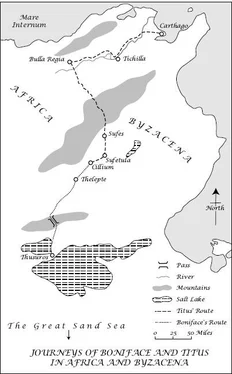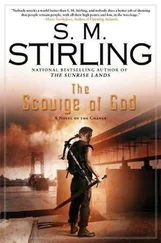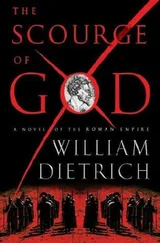Ross Laidlaw - Attila:The Scourge of God
Здесь есть возможность читать онлайн «Ross Laidlaw - Attila:The Scourge of God» весь текст электронной книги совершенно бесплатно (целиком полную версию без сокращений). В некоторых случаях можно слушать аудио, скачать через торрент в формате fb2 и присутствует краткое содержание. Жанр: Исторические приключения, на английском языке. Описание произведения, (предисловие) а так же отзывы посетителей доступны на портале библиотеки ЛибКат.
- Название:Attila:The Scourge of God
- Автор:
- Жанр:
- Год:неизвестен
- ISBN:нет данных
- Рейтинг книги:5 / 5. Голосов: 1
-
Избранное:Добавить в избранное
- Отзывы:
-
Ваша оценка:
- 100
- 1
- 2
- 3
- 4
- 5
Attila:The Scourge of God: краткое содержание, описание и аннотация
Предлагаем к чтению аннотацию, описание, краткое содержание или предисловие (зависит от того, что написал сам автор книги «Attila:The Scourge of God»). Если вы не нашли необходимую информацию о книге — напишите в комментариях, мы постараемся отыскать её.
Attila:The Scourge of God — читать онлайн бесплатно полную книгу (весь текст) целиком
Ниже представлен текст книги, разбитый по страницам. Система сохранения места последней прочитанной страницы, позволяет с удобством читать онлайн бесплатно книгу «Attila:The Scourge of God», без необходимости каждый раз заново искать на чём Вы остановились. Поставьте закладку, и сможете в любой момент перейти на страницу, на которой закончили чтение.
Интервал:
Закладка:
There was a silence, which began to stretch out uncomfortably, when Titus suddenly found himself speaking. ‘If there were only some way to take them in the rear, sir. I know those marshes on their flanks look impenetrable, but if we could find a way through. .?’ He broke off self-consciously, realizing that, as possibly the most junior person present, he might be speaking out of turn. ‘My father pulled off something on those lines at Pollentia,’ he pressed on gamely, ‘against Alaric’s Goths.’
‘And saved the day for Flavius Stilicho, as I recall,’ added Aetius approvingly. ‘Full marks, young Titus. I was about to make the same suggestion. The Huns are at their deadliest when they can outflank an enemy, so it’s definitely worth a try. Right, we’ll make a reconnaissance. Groom, saddle Bucephalus. Titus, Victorinus, mount up. Marcus, keep the Huns in leash till I get back.’
‘Right, let’s head for home,’ Aetius said to his two companions. He dashed sweat from his face. ‘At least we tried.’
Making a wide circuit to the enemy’s right flank, they had managed, with considerable difficulty, to pick a passage through the mosquito-ridden hell of the swamp, eventually emerging on firmer ground several miles to the rear of Aspar’s lines. What had been just feasible for a tiny party was clearly impossible for a large body of horsemen.
‘Sir, look!’ exclaimed Victor, a normally phlegmatic Batavian youth. He pointed to four horsemen in the distance, probably an Eastern scouting-party. Three, judging by their javelins and small round shields, were light horse, while the fourth had no shield and so was probably a heavy cavalrymen to stiffen the patrol. Spotting the West Romans, the four immediately spurred to intercept them.
‘Run for it, lads,’ ordered Aetius.
As the three urged their mounts to a gallop, they were presented with a dilemma. They could only hope to outdistance their pursuers by keeping to the firm ground away from the marsh. But this course must eventually bring them dangerously close to Aspar’s lines. The problem was resolved unexpectedly.
The chase had continued for some time, with the West Romans beginning to draw away, when a cry from Victor in the rear made the other two pull up. Encountering a swampy patch, he had become mired. He had dismounted and was tugging desperately at the bridle, but the horse had sunk almost to the hocks and was stuck fast.
‘Leave it!’ shouted Aetius, racing back accompanied by Titus. Reining in close to the edge of the bright green surface of the bog, he leapt to the ground and extended a hand towards Victor, now himself in some difficulty.
‘Ride on, sir,’ urged Victor. ‘Don’t put yourself at risk. I’ll give myself up.’
‘Don’t be a fool,’ snapped the general. ‘They’ll kill you; cavalry never take prisoners.’
Victor struggled to the edge of the morass, grasped the general’s hand and was hauled clear.
‘Get up behind me,’ ordered Aetius, grabbing his horse’s mane and swinging himself into the saddle. But as the young Batavian reached for a rear saddle-horn, a javelin came arcing through the air and struck him in the back. He gave a choked cry, blood gushed from his mouth, and he crumpled to the ground.
The delay had allowed the pursuit to close. The leading three were only yards away, the fourth, the heavy cavalryman, some distance behind.
‘Take the one on the right!’ Aetius shouted to Titus, wheeling Bucephalus and charging the other two leaders.
Suddenly, time seemed to slow for Titus. As in a dream, inconsequent details registered on his mind: his opponent’s arm still upraised from hurling the missile that had killed Victor; the helmet with its tall crest, nose-guard and huge cheek-pieces giving the man an ancient, almost Homeric appearance; the pair of rampant wolves painted on his shield; his horse’s hoofs lifting and falling no faster than a galley’s oars.
Then time came back to normal. The two horsemen hurtled towards each other, Titus drawing his sword, a long, cutting spatha , while the other plucked another javelin from the leather bucket at his saddle-bow. They passed in a blur of confused movement; Titus hacked, his blade biting air, while the other’s javelin flew wide. They wheeled to face each other again, paused briefly to take stock and ready themselves.
Titus, an experienced horseman, noticed signs of restiveness in the enemy’s mount: it was shying and fighting the bit. At some stage, horse or rider had lost his nerve, he decided. Probably the rider, whose lack of confidence transferred itself to the animal. The Eastern cavalry had recently seen hard action on the Persian front; some units, if exposed to constant attack by the superb Persian horsemen, would have become demoralized. Trusting that the horse would flinch and spoil its rider’s aim, Titus bent low over his own horse’s neck and rode straight at his opponent.
Things transpired as he had hoped. Daunted by Titus’ direct charge, the enemy’s horse reared as its rider flung his weapon — Titus felt the wind of its passage past his cheek as he drove his sword-point into the exposed armpit. A jarring shock travelled up his arm as steel struck bone; then the blade slid deep into yielding flesh. Wrenching his spatha free, Titus wheeled, preparing for another clash. No need. Blood spurting from a severed artery, his adversary swayed in the saddle and slid to the ground. His legs kicked spasmodically, then he lay still.
Turning towards Aetius, Titus saw with dismay that the general was hard pressed. He had dispatched one of his opponents, and was engaged in a sword duel with the other, the closeness of the combat precluding a javelin-throw. The pressing danger came from the fourth cavalryman the armoured catafractarius , who was galloping to his comrade’s assistance.
With no time to think, scarcely enough to react, Titus spurred towards the monstrous figure bearing down on his commander. The catafractarius presented an appalling sight. Every part of his body was covered in metal: limbs encased in laminated bands; hands, feet, and body protected by articulated plates reinforced with chain mail; the spherical helmet completely concealed the face and head, giving the wearer an inhuman appearance. The horse, too, was armoured, its head and chest covered by moulded plates, its body by a housing of metal scales. Couched in the attack position the catafractarius held a heavy kontos , the deadly twelve-foot spear which could transfix a man like a rabbit on a spit.
Converging on this apparently unstoppable killing-machine, Titus saw that the catafractarius was vulnerable in only one place: the narrow gap between helmet and body armour. Knowing that he would have only one chance, he slashed at the gap with all his might. The other’s impetus prevented him from swerving to avoid the blow, which landed true. The spatha was nearly torn from Titus’ grip as the catafractarius thundered past, blood jetting from his neck in a crimson spray.
Abandoning valour in favour of discretion, the surviving trooper broke off his fight with Aetius and fled. Meanwhile, the catafractarius’ horse charged on, then slowed and finally came to a halt, its lifeless rider still upright in the saddle.
‘I owe you my life.’ The general grasped Titus by the arm. ‘This I will not forget.’
Titus’s mind flashed back eighteen months to when it had all begun. .
1The ninth hour was mid-afternoon. The Roman day — from sunrise to sunset — was divided into twelve hours, which varied in length according to the season. Midday corresponded to the sixth hour.
ONE
Ill-smelling seven-foot giants with tow hair
Интервал:
Закладка:
Похожие книги на «Attila:The Scourge of God»
Представляем Вашему вниманию похожие книги на «Attila:The Scourge of God» списком для выбора. Мы отобрали схожую по названию и смыслу литературу в надежде предоставить читателям больше вариантов отыскать новые, интересные, ещё непрочитанные произведения.
Обсуждение, отзывы о книге «Attila:The Scourge of God» и просто собственные мнения читателей. Оставьте ваши комментарии, напишите, что Вы думаете о произведении, его смысле или главных героях. Укажите что конкретно понравилось, а что нет, и почему Вы так считаете.












